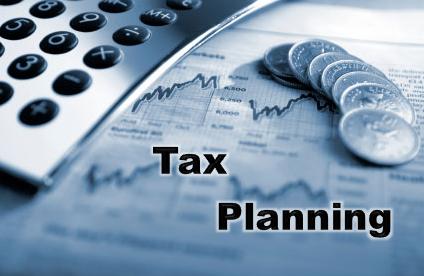
The end of the financial year is approaching. As you know, legitimate tax minimisation for the year can often be achieved by taking certain action prior to 30 June.
The following is a list of some of the issues you may wish to consider:
- In order to maximise benefits for the current year, it is usually helpful to prepare a preliminary assessment of your taxable income for the year to date, so that it can be seen whether or not there is a problem to fix.
- Review all deductible expenses and assessable income in the latest available figures (or prior years figures if current figures are not available) to determine the prospects for pre-payment, deferral or other action.
This is not a comprehensive list and terms and conditions may apply to some of these strategies if used in your circumstances.
If you would like to go through the possibilities with us please call well before 30 June so that there is time to implement any strategies that may be desirable.
TAX MINIMISATION STRATEGIES
In order to minimise liability to taxation for the current year, the general strategy options for most taxpayers are as follows:
- Delay deriving assessable income
- Bring forward incurring deductible expenses or
- Pre-pay (up to 13 months) next year’s
- Shift income to a taxpayer with a lower marginal tax rate
- Negative gearing strategies (extreme caution is required).
- Make payments that receive special tax treatment e.g. certain superannuation contributions.
Warning! The circumstances under which the above principles can be applied are limited by certain conditions placed on taxpayers by the legislation e.g. not all pre-payments will be allowable as tax deductions, some types of income can’t be shifted.
THE BENEFITS
The effect of the above actions is either to permanently reduce or eliminate the amount of tax payable or to delay the need to pay the tax for at least another 12 months.
In particular, you may benefit from tax minimisation strategies, if your taxable income for the year ended 30 June 2017 will be significantly higher than the year ended 30 June 2018. This could happen if:
- you have a ‘one-off’ capital gain or other irregular income amount in 2016/2017.
- you will not be working or earning as much income next year (y/e 30/6/2018).
A reduced taxable income can also have the effect of allowing receipt of Government benefits which are means tested e.g. family allowance, child day care fee relief etc.
CONSIDER THE FOLLOWING ITEMS
- Income Delay
- Timing of Derivation of Income
- Timing of Raising a Bill for incomplete work (Businesses)
- Bringing Forward Deductible Expenses or Losses
- Superannuation contributions (In addition, some individuals may be entitled to a Government Co-Contribution if they make a non-concessional contribution.).
- Capital gains/losses – timing of transactions.
Businesses should also consider:
Stock valuation options, writing off obsolete stock/plant, bad debt write-offs, paying the Compulsory Employee Super payment by 30 June, bringing forward repairs and maintenance by 30 June.
- Prepayment of Expenses
- In certain circumstances expenses paid for before they are due will be tax deductible when they are paid, e.g. Insurance premiums, membership of organisations, travel, advertising and interest.
- Other Year End Issues
- If you are a trustee and you make beneficiaries of a trust entitled to trust income by way of a resolution;
- The trustees must make the resolution and have evidence of this by 30 June 2017 at the latest.
- The ATO must be notified by 31 July 2017 of any new beneficiary Tax File numbers
- If you use a car in producing your income you may need to;
- Record Motor Vehicle Odometer readings at 30 June.
- Prepare a 12 week log book if your existing one is older than 5 years
- If your Directors Loan Account in your business in debit, you must either;
- Fully repay the loan before the earlier of the due date for lodgment and the date of the lodgment of the lender’s tax return for the year of income or
- Have Division 7A loan agreement in place.
- The income tax rate for small business companies (an aggregated annual turnover of less than $10 million) for 2016-17 has reduced to 27.5 per cent.
- Preparation of Stock Take Report as at 30 June 2017.
- Preparation and reconciliation of Employee PAYG Payment Summaries (Group Certificates).
- Preparation of Taxable Payment Annual Report (building and construction industry only)
- Small businesses can immediately deduct assets costing less than $20,000. This asset write-off threshold started 12 May 2015 and will end on 30 June 2018.
- If you are a trustee and you make beneficiaries of a trust entitled to trust income by way of a resolution;